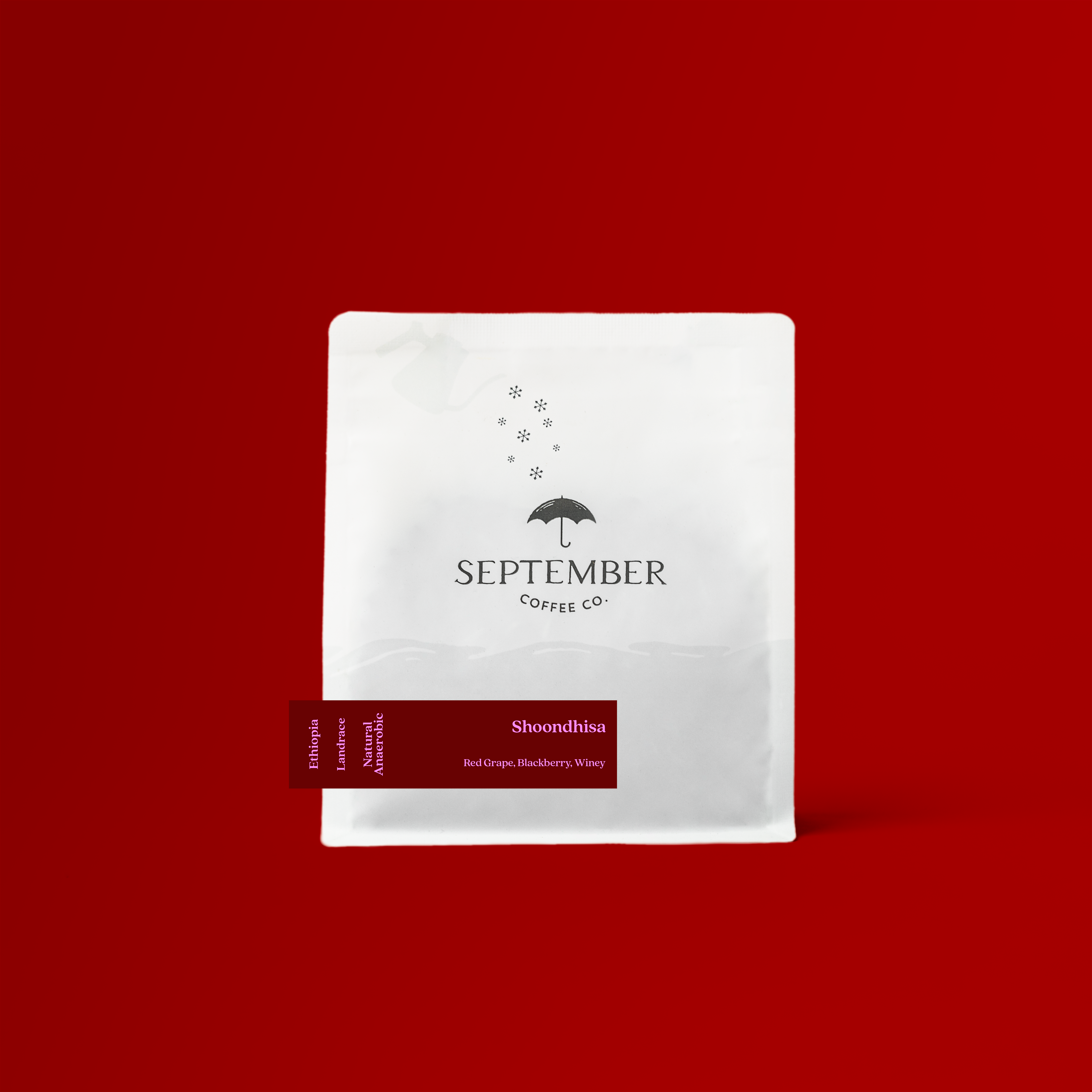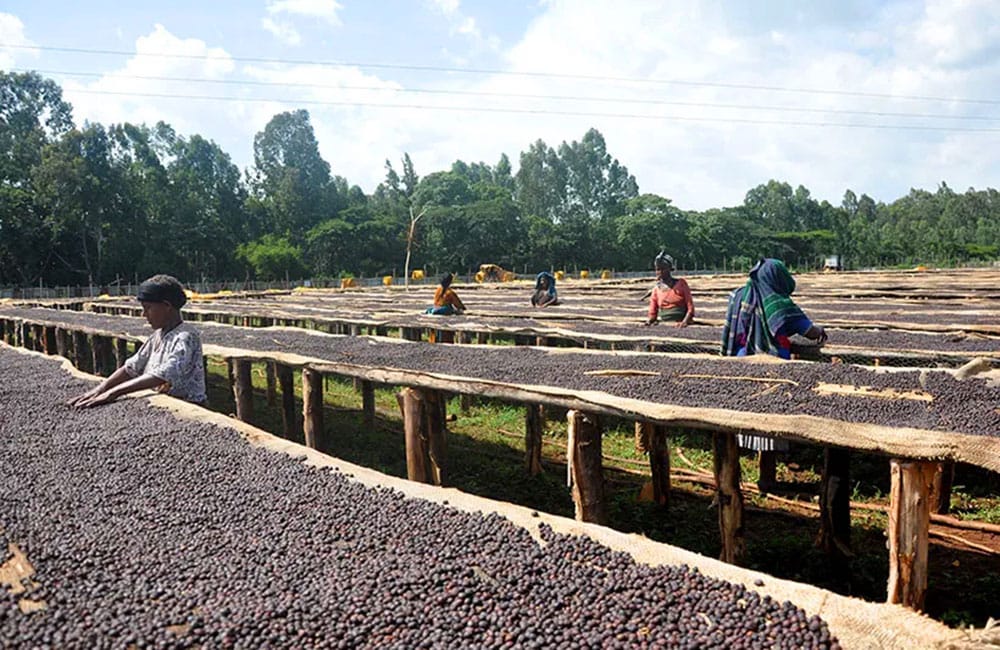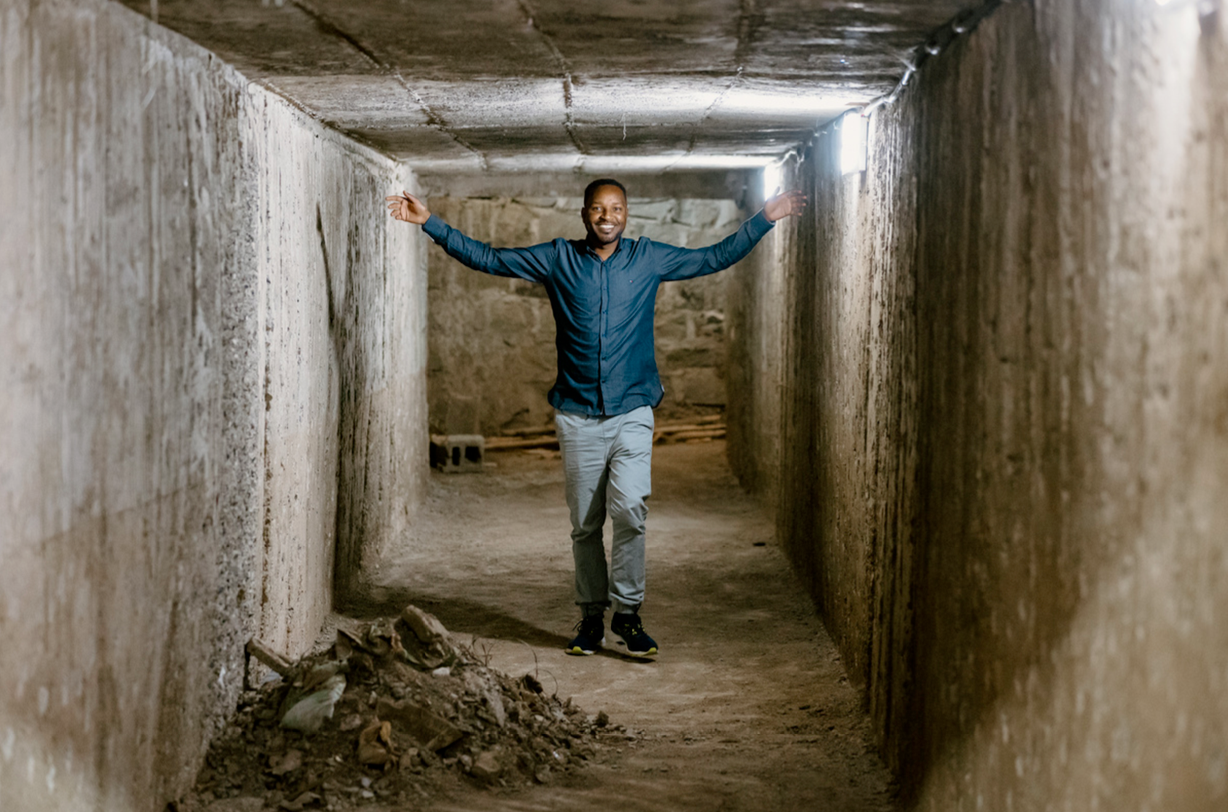


Shoondhisa - Ethiopia (Extra-Light)
Our second time featuring Shoondhisa, we're fans of the sweet profiles that Sookoo produces with this coffee. This specific coffee is an anaerobic natural with a juicy, vibrant profile with a red grape sweetness and a juicy lime acidity. This is an extra-light variant of Shoondhisa and is recommend only to experienced brewers willing to wait 40+ days from the roast date for best results. Extra-Light profiles are lower in initial sweetness and intensity but higher in clarity.
200G
Shoondhisa - Ethiopia (Extra-Light)
September Coffee Roastery
119 Iber Road
Unit 9
Ottawa ON K2S 1E7
Canada
- Variety: Gibirinna 74110 & Serto 74112
- Country: Ethiopia
- Region: Sure Auto, Shakiso, Guji
- Process: Anaerobic Natural
- Altitude: 2000 - 2200 MASL
- Harvest: 2024
- Producer: Ture Waji (Sookoo Coffee)
- Roast Level: Extra-Light
 In the cup
In the cup
In the cup we get a vibrant profile of juicy red grapes, cranberries and juicy lime. The mouthfeel is silky with a red berry sweetness and a bright citric acidity. This coffee is vibrant with a long juicy finish.
 Funky
Funky
 Experimental
Experimental
 About The Producer
About The Producer
Sookoo coffee is a family owned company that produces and exports organic specialty and traceable coffee in the high altitudes and semi-forest of Guji, located in the South of Oromia Mountains of Ethiopia. And Guji is home to the top award-winning at national and International Ethiopian specialty coffee. Ture Waji, famously known as ‘The King of Guji’, is the gentle ruler of Sookoo Coffee, located in the Woredas of Uraga and Shakisso. He has strong connections to the land, its community and farmers, as he grew up in region. After studying, he started as an export and farm manager at his cousin’s coffee farm and company Mormora, and at Guji Highlands Coffee. He was able to start Sookoo Coffee (previously Dambi Uddo), thanks to the trade and coffee liberalization in Ethiopia, building his first washing station and exporting his first coffee under his own brand in 2018.
 Processing
Processing
Upon receiving the cherry, Sookoo sorted out any under or overripe cherry and then placed the cherry inside plastic containers for 72 hours. After this period of time in a reduced oxygen environment, the cherry was spread on drying tables where it was dried for roughly 25 days.
 Variety
Variety
Both of these varieties are from the Metu Bishari selections made in the forests of the Illubabor Zone in western Ethiopia in 1974. The Jimma Agricultural Research Center (JARC) selected these particular varieties for their resistance to coffee berry disease. Now, they are some of the most propagated varieties in Ethiopia.
